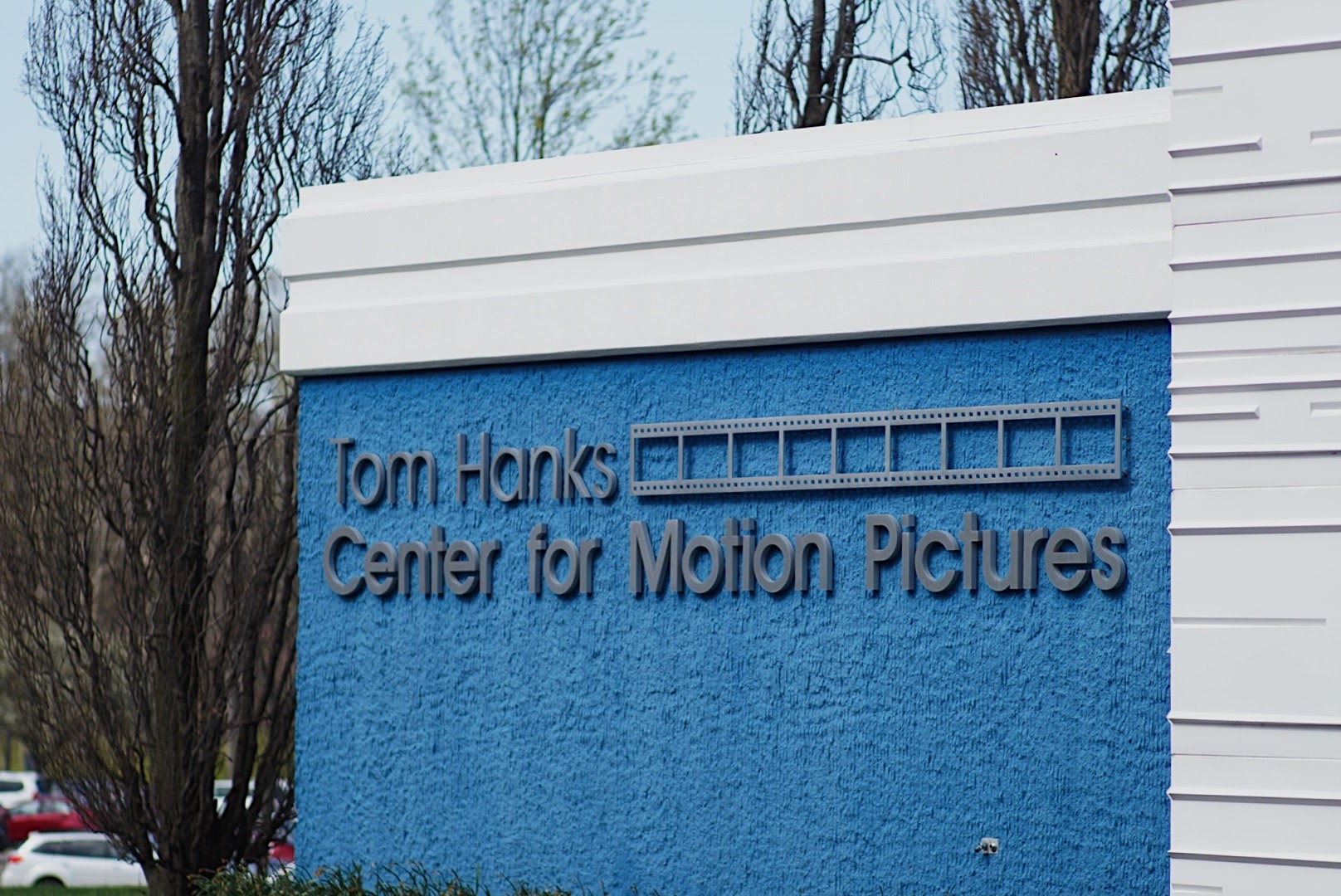
Tom Hanks Center for Motion Pictures | Photo by Emily Linker | The Wright State Guardian
Growing up, Lindsey Kibler wanted to be a cowgirl but eventually discovered her passion was filming. Her parents, on the other hand, believed she should use her talents in math and science to pursue a career in the STEM field.
In fact, she had to battle with her mom right up until orientation at Wright State University.
“[The speaker] convinced my mom that there were jobs in [the film industry],” she said. “The way he convinced her was by saying there are 9 to 5 jobs that are not studio jobs but not freelance work, but basically it’s like you show up and make a commercial.”
The conversation was a little easier with her father.
“My mom has always been the vocal one about if I’m doing something she doesn’t like she would pick a fight with me,” said the 22-year-old Kibler, who graduates in 2022. “My dad didn’t really say anything, mostly because his rule is he’ll support me no matter what, even if he disagrees with what I am doing.”
A passion for motion pictures
Kibler ended up finding her passion in film and started pursuing a degree in motion pictures at Wright State University.
Halfway through her junior year at Tri-Rivers Career Center in Marian, Ohio, the school added a new class. A film class. Kibler said she always wanted to pursue a career in the art field, but after picking up photography and winning awards in a few competitions she felt “burnt out” and knew photography was not her passion.
After her passion for photography faded and trying graphic design and not enjoying that either, she decided to dive into the film class at her school. She had the opportunity to film a documentary in her class.
“It was a really crappy documentary and it’s very cringe-worthy because it’s us acting in it, but that’s like when it really solidified that this is something I want to go into,” she said.
Kibler looked into the top film programs in Ohio and saw that the Wright State Motion Picture Program was rated in the top half of all film programs in the nation.
She thought her grades might keep her from getting into the program, but Wright State representatives came to the career center and talked about how the college is open to students with a wide range of grade point averages.
Kibler decided to apply and was ready to start a new adventure and follow her passion.
Standing out
After being accepted and getting started, Kibler discovered she was one of only three women in the program and that, combined with a heavy workload, started to wear her down.
“I have to work harder and better than the men in my class to even feel equal to them because they can lift that 100 pound stand with ease,” she said. “I struggle a little bit more, but also I’m smaller than most of the people in my class so I have to work harder to be considered equal.”
After experiencing sexism for the first time in one of her classes, Kibler realized some of the struggles women could experience being in a male-dominated industry.
“I have more demons than the guys have to deal with, like, I’m directing this semester. I had to sit down with my team and talk about sexism, and tell them I’m not having it,” she said.
One of Kibler’s professors, Nichol Simmons, helped her navigate these new types of challenges.
“Simmons said “call me” and her and I had a really good talk,” Kibler said.
While she was a student at WSU, Simmons won the first honorable mention award at the Sundance Film Festival in 1996 for her short film Dry Mount.
“What [the award] did was present me with a flood of phone calls from agents and managers and production companies,” said Simmons, who is now an adjunct professor at WSU. “Unfortunately my program hadn’t really prepared me to deal with it.”
She kept getting asked “what’s next” but still being a student, Simmons had nothing else written or prepared.
“I hadn’t really given much thought to anything beyond wanting to move to L.A. and that was kind of it,” she said. “No one had ever talked to me about what I might do as a career and how I might achieve that.”
Still, Simmons followed her passion and moved out to California.
“I’m not really sure what the dream was for me, only vaguely like I wanted to be a famous writer and director,” she said. “That’s why you move out because you’re going to be a pain, as a famous writer.”
Simmons directed workshops for women at the American Film Institute for over 10 years and she shared that she has heard some “horrific” stories about sexism in the industry.
“I think that the inset has shifted quite a bit where we celebrate more people’s differences via a high profile way as this gives them their voice, but that didn’t exist at the time,” she said.
Simmons teaches screenwriting at WSU and has some advice for students about the challenges they may encounter in the industry.
“be conscious of the interest of it happening and creating boundaries but the biggest advice I give is work with other people, from marginalized groups,” she said.
